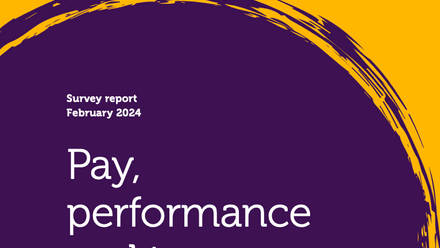Ethnicity pay reporting to bring even greater transparency to the reward function

The experience of BAME employees
With this in mind, it is unsurprising that government has turned its attention to ethnicity pay reporting. Earlier this month Business in the Community (BITC) published its Race at Work - The Scorecard Report 2018. It found that British Black, Asian and Minority Ethnic (BAME) people in the workplace are ambitious, but there is a lack of opportunity. It emphasised that this is a waste of talent, energy, enthusiasm and expertise.
Shockingly, the report revealed that one in four BAME employees had experienced or witnessed racist harassment or bullying from managers in the last two years. And although 70 per cent of BAME employees say career progression is important to them, more than half believe they will have to leave their current organisation to advance their career.
The BITC report makes several recommendations and sets out actions employers can take to improve the workplace for BAME employees. Yet, although there is much to be done to improve opportunities for this cohort of employees, the current focus is on pay.
The current approach to measuring ethnicity pay gaps
The Equality and Human Rights Commission (EHRC) released its Measuring and reporting on disability and ethnicity pay gaps report at the end of August. It found that nearly 80 per cent of employers say that ensuring workforce diversity is a priority for their organisation. However, fewer than half record or collect data on whether employees are disabled and only 36 per cent record or collect data on employee ethnicity.
The research also revealed that only 23 per cent of employers collect data on staff pay and progression that can be broken down by ethnicity and disabled and non-disabled staff. Furthermore, just three per cent actually analyse this data to explore differences in pay and progression between different ethnicities and disabled and non-disabled staff.
In its report the EHRC called on the government to require private, voluntary and listed public sector employers, with 250 or more employees, to monitor and report on ethnicity and disability in recruitment, retention and progression within the workplace by April 2020.
Call for consultation responses
Although disability pay reporting has not yet been taken up, the government has progressed with proposed requirements around workplace ethnicity. On 11 October it launched a consultation into ethnicity pay reporting. It sets out and asks questions on three main areas:
- what ethnicity pay information should be reported by employers to allow for meaningful action
- who should be expected to report
- next steps.
REBA is collating views on this topic to submit a response to the consultation. If you have a particular stance on this issue and would like to be part of REBA’s response, please email your comments to [email protected] by 12 December. The full consultation closes on 11 January.
The REBA Reports Library has hundreds of reports, surveys and other handy documents pulled together from a myriad government departments, academics, independent organisations and suppliers. We have pulled them together for our members to use to find the data they need to support business cases, presentations and other reward work.
Dawn Lewis is content editor at the Reward & Employee Benefits Association.






